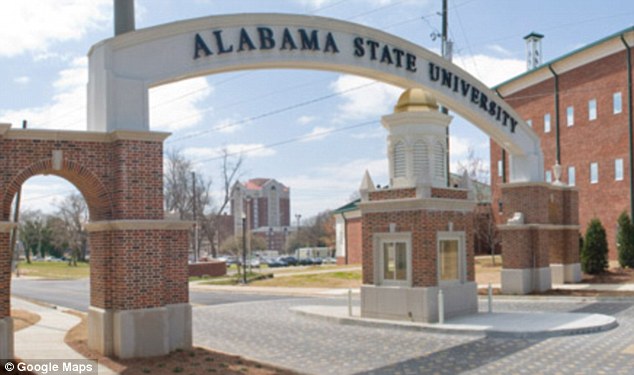The federal government has joined a suit filed against the Alabama State University for allegedly mishandling the scholarship meant for students’ rent, books and food.
In 2013, the federal government under former President Goodluck Jonathan sponsored 41 Nigerian students to study at ASU, a historically black university.
But two years ago, 36 Nigerian students in the school sued the university, accusing it of either misusing or mishandling $800,000 meant for them.
The federal government later joined as a plaintiff in the suit.
Advertisement
According to BBC, the government accused the university of charging the students for accommodation they did not use and lessons they did not take.
But the university has denied the allegation, saying it had “adhered to and complied with every instruction and direction given to the university by the Nigerian government regarding that agreement.”

Advertisement
It said the Nigerian government was owed $202,000, saying it had been deposited into an account.
But Anthony Ifediba, counsel to the students, said they believed the university might have withheld as much as $800,000.
He told the Montgomery Advertiser that the Nigerian government had paid Alabama State University about $5m, which was meant to cover tuition and living costs for all the students.
“When these students came to ASU, they didn’t know anybody but they were provided for. Through ASU, there were monies that were supposed to have been paid to the students to maintain their daily living, because they didn’t know anybody and don’t know who to turn to in terms of hardship. But ASU has kept this money,” Ifediba said at a press conference.
Advertisement
“I hope it will sober the Alabama State University up, and its new president, to realise that what these students are talking about is very serious and it’s having an adverse effect on them legally and I’d imagine public relations-wise.
“ASU seeks to attract students from all over the world, certainly from Africa but maybe from other parts of the world. If it shows Nigerian students are not being treated right, others are going to raise their eyebrows and say, ‘Maybe we should go to Tuskegee or Auburn.'”
Kehinde Batife, one of the beneficiaries, told the Montgomery Advertiser that the students received $32,000 each, and Ifediba said Nigeria paid ASU about $5 million in total to cover tuition and student expenses.
However, the students claimed that they were denied access to the funds leftover after tuition was paid.
Advertisement
Success Jumbo, another beneficiary, described the difficulties he encountered while at ASU.
“I didn’t anticipate any of this to happen,” Jumbo said. “This is supposed to be money made available to us. It’s not like we were asking for money from his personal pocket. It’s money made available to us to get these things when we need them.”
Advertisement
Jumbo got married in May 2014 and moved off campus, but he said ASU continued to charge his account for on-campus housing and didn’t release funds for him to pay rent.
“I have a family and can’t live on campus with my family. So I went to the provost on several occasions asking him, ‘Look let me have the funds. This is not your money. This is my money,'” Jumbo said.
Advertisement
“We offered an authorization letter twice and yet he still refused to release the funds.”
Jumbo and several other Nigerian students graduated in three years, but Jumbo said he still received charges for the summer after he graduated.
Advertisement
Ifediba said some other three-year graduates were charged for a fourth year.
Some of the 41 students transferred from ASU, but Ifediba said those “two or three” students had difficulties transferring their funds from ASU to another university.
In the complaint, ASU attorney Kenneth Thomas is quoted as saying any refunds of credit would be issued to the Nigerian government, because “there is no financial arrangement between the University and the individual Nigerian students.”
In a statement issued by the ASU public relations office, Thomas said the students had no standing in the agreement. Thomas also referenced the $200,000 ASU put aside for the Nigerian government after the lawsuit was filed.
ASU has advised the Nigerian government through several letters that as a result of the University’s accounting over the last four years, the government is entitled to a $202,009.50 credit, which was deposited last year into a trust account at the federal courthouse in Montgomery, Ala.
The university is yet to receive a response from the Nigerian government regarding the credit.”
All claims in the lawsuit took place prior to ASU’s hiring of Quinton Ross as president last fall.
McPhillips called Ross an “honourable person” and said he hopes that Ross will help resolve the dispute.
Ifediba expressed similar hope that Ross could offer a solution to the problem. Meanwhile, he said the Nigerian government has become more cautious with its foreign study scholarship programme.
“The Nigerian government has the impression they’d go travel to the U.S., get a western education and get properly trained, but when you run into issues like this, it kind of breaches a lot of trust,” Ifediba said.
“Right now the program has decided not to send a lot of the students outside the country and instead send them to universities inside Nigeria.”
Add a comment






